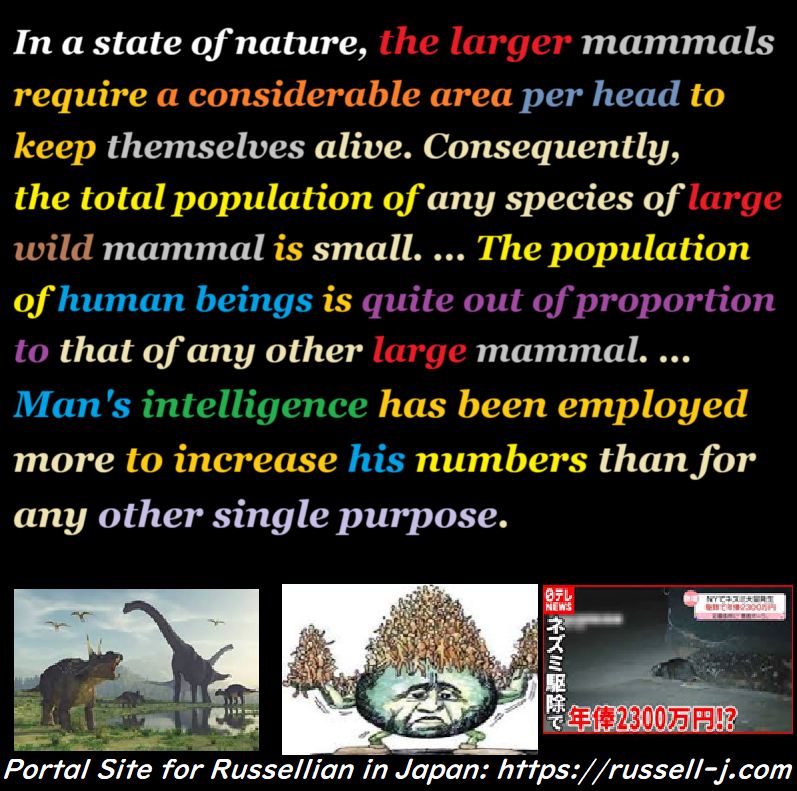
In a state of nature, the larger mammals require a considerable area per head to keep themselves alive. Consequently, the total population of any species of large wild mammal is small. ... The population of human beings is quite out of proportion to that of any other large mammal. ... Man's intelligence has been employed more to increase his numbers than for any other single purpose.
Source: Bertrand Russell: Marriage and Morals, 1929
More info.:https://russell-j.com/beginner/MM16-140.HTM
* a brief comment:
In today's "Words of Russell," it is asserted that large animals have smaller total populations because they require large amounts of food, whereas smaller animals can survive on less and therefore exist in greater numbers. But how well does this claim hold within a single species? For example, can we say that smaller-bodied populations (such as the Japanese) tend to be more numerous than larger-bodied populations (such as Americans)? That doesn’t seem very likely. Rather, it would be more accurate to say that countries enriched by scientific and technological advancement are able to support larger populations. However, in today's world, science and technology, especially medical technology, seem to be used less to increase the number of people and more to help people live longer lives. If humanity becomes able to migrate to habitable planets beyond Earth, science and technology might once again be used to increase population. Still, it's hard to say that an increase in numbers necessarily leads to progress or happiness for humanity.
* Amazon Gift Card
Source: Bertrand Russell: Marriage and Morals, 1929
More info.:https://russell-j.com/beginner/MM16-140.HTM
* a brief comment:
In today's "Words of Russell," it is asserted that large animals have smaller total populations because they require large amounts of food, whereas smaller animals can survive on less and therefore exist in greater numbers. But how well does this claim hold within a single species? For example, can we say that smaller-bodied populations (such as the Japanese) tend to be more numerous than larger-bodied populations (such as Americans)? That doesn’t seem very likely. Rather, it would be more accurate to say that countries enriched by scientific and technological advancement are able to support larger populations. However, in today's world, science and technology, especially medical technology, seem to be used less to increase the number of people and more to help people live longer lives. If humanity becomes able to migrate to habitable planets beyond Earth, science and technology might once again be used to increase population. Still, it's hard to say that an increase in numbers necessarily leads to progress or happiness for humanity.
* Amazon Gift Card
